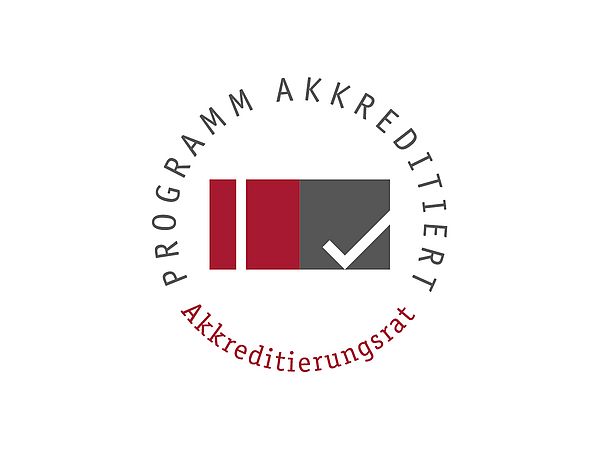Energy and Materials Physics * (Bachelor)
Energieeffizienz und nachhaltige Energieversorgung sind Eckpfeiler der Energiewende. Sie erfordern auch neue Wege der Materialentwicklung für Energiewandlung und Energiespeicherung. Der neue Bachelor-Studiengang Energie und Materialphysik kommt diesen Erfordernissen nach. Er spricht physikalisch interessierte Studienanfänger an, die sich mit einer breiten, naturwissenschaftlich angelegten Ausbildung für Tätigkeiten in zukunftsorientierten Hochtechnologiefeldern qualifizieren möchten.
Jobs and careers
Graduates of the Energy and Materials Physics bachelor's degree have excellent career opportunities, especially in connection with a subsequent master's degree. Industrial activities, mostly in research and development, represent the main job market for most graduates. A large proportion of graduates also find employment in public institutions such as universities and research institutes. In addition, the graduates of this bachelor's degree are particularly qualified for a wide range of activities in the growing energy sector with its broad education and focus on energy-related course content. The job opportunities in the field of physics/physical technologies are among the best of all academic professions.
Technical focus
The bachelor’s degree in Energy and Materials Physics imparts in-depth knowledge of physics, chemistry and material properties and thus creates the basis for material physics training including energy-related study content such as solar energy conversion and functional materials for energy conversion and energy storage. In addition, it provides insights into energy resources and energy technologies and qualifies graduates for further training in materials science, energy technology and physical-technological master's courses, but above all for the consecutive master's course in energy and material physics at the TU Clausthal. In their interdisciplinary Bachelor of Science (B.Sc.) education, students benefit from the special opportunities offered by a small university, such as personal support.
Jobs and careers
Mathematical and scientific basics:
- Classical physics, atomic and solid state physics
- Chemistry
- mathematics
- materials science
Specializations:
- Fossil and regenerative energy resources
- Functional materials: batteries, fuel cells, sensors
- Solar energy conversion
- Chemistry of Energy Functional Materials
- Solid state analysis and measurement technology
- research internships
Transferable qualifications:
- social skills
- industrial internship
- Business Administration
- Scientific work
Thesis:
- Three-month bachelor thesis
Goals of the study
The interdisciplinary bachelor's degree in Energy and Materials Physics imparts in-depth knowledge of physics, chemistry and material properties and thus creates a broad basis for material physics training, including energy-related study content such as solar energy conversion and functional materials for energy conversion and energy storage. In addition, it provides insights into energy resources and energy technologies and qualifies graduates for further training in materials science, energy technology and physical-technological master's courses, but above all for the consecutive master's course "Energy and Material Physics" at the TU Clausthal. The bachelor's program teaches material and system skills in the focus field of energy, primarily using established model systems and materials, the functionality of which is conveyed to the students within the framework of the physical and chemical principles learned in the first two years of study. For example, the students learn and understand practice-relevant characteristics for solar cells (energy and material module) on the basis of accessible concepts such as characteristic curves, etc., without requiring further knowledge of solid state physics. As a research-oriented course, learning how to work scientifically plays an important role even during the bachelor's degree. For this purpose, an extensive research internship is planned before the bachelor thesis, which enables the students to work on ongoing research projects and thus familiarizes them with the scientific methodology. Practical relevance and the classification of material-physical issues for activities in industry, preferably in research and development departments, is conveyed through an obligatory industrial internship. Interdisciplinary content such as business administration and cost and profitability accounting facilitate a successful career start with a bachelor's degree.
Prof. Dr. Daniel M. Schaadt
Phone: +49-5323-72-2322
E-mail: ba.emph@tu-clausthal.de
Institute of Energy Research and Physical Technologies
Leibnizstraße 4
38678 Clausthal-Zellerfeld
Studying in Clausthal
Start application now.
Program outline
Type of program: Bachelor
Duration: 6 Semester
Language of teaching: German
Degree: Bachelor of Science (B.Sc.)
Prerequisites: University admission requirements
Start date: Winter semester (recommended). If you wish to start studying in the summer semester, we recommend taking our Steiger College program.
Akkreditierung: EUR-ACE-Label
Starting your Studies
Welcome Weeks (before the start of lectures)
The Clausthal University of Technology supports the start of studies with various event formats.
Pre-course in mathematics (before the start of lectures)
The Institute of Mathematics offers a pre-course in mathematics for all first-year students.
These courses might also interest you
Materials science and engineering Sustainable energy technology and systems
Subsequent Master's programs
Energy and Materials Physics Materials Science and Engineering Chemistry
Documents
Study program flyer
Model study plans
valid for AFB 2023
valid for AFB 2014
Examination regulations
- General Examination Regulations
- Implementation regulations (2023), valid from SoSe 2023 onwards
- Implementation Regulations (2014), valid until end of SoSe 2027
Internship regulations
Elective catalogs
- Elective catalog for WS 24/25 and SoSe 25_update 18.06.2024
- Elective catalog for WS 23/24 and SoSe 24_update 13.06.2023
Module manuals
valid for AFB 2023
valid for AFB 2014
![[Translate to English:] [Translate to English:]](/fileadmin/_processed_/9/1/csm_Beachvolleyball_1_1a8913aa18.jpg)

